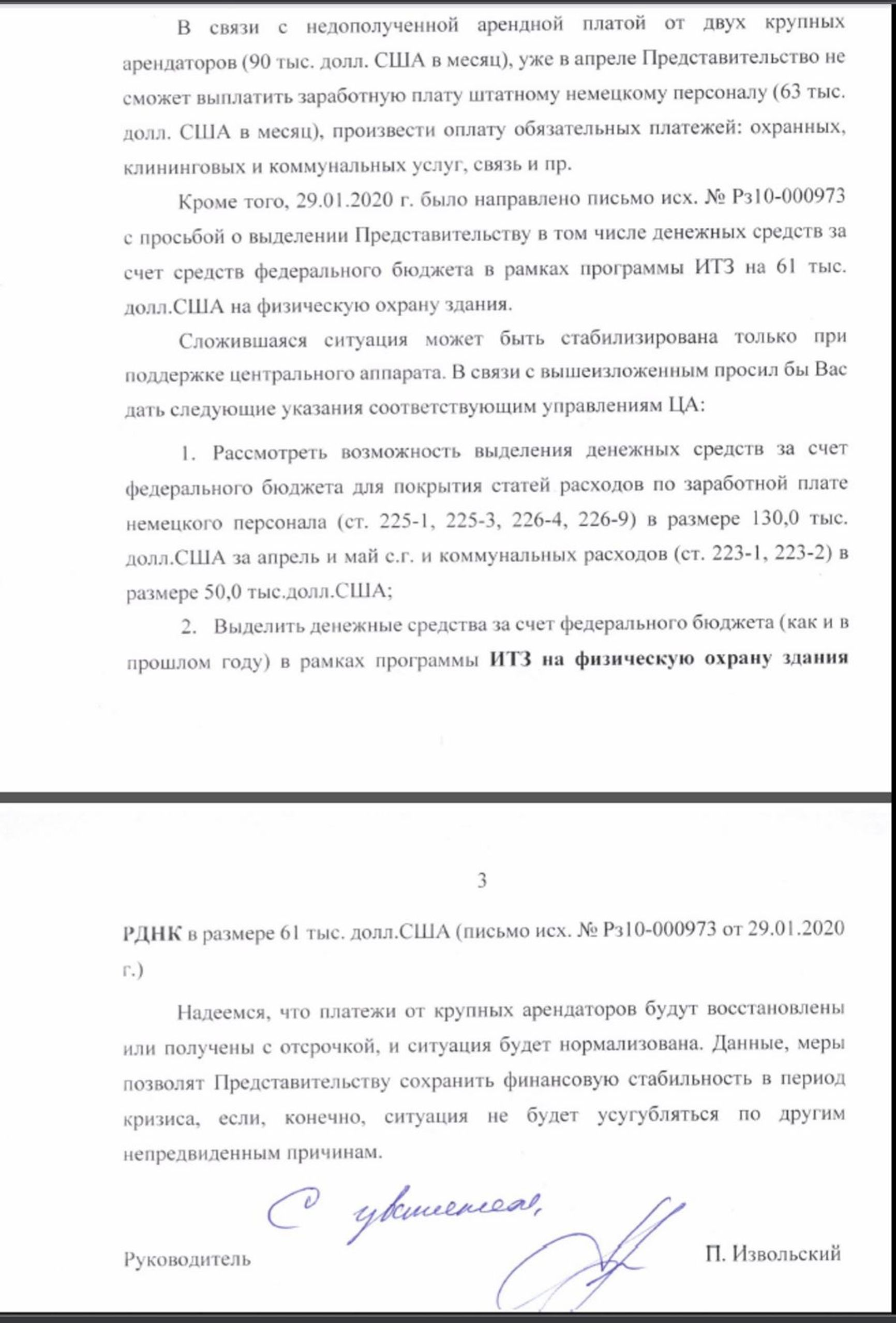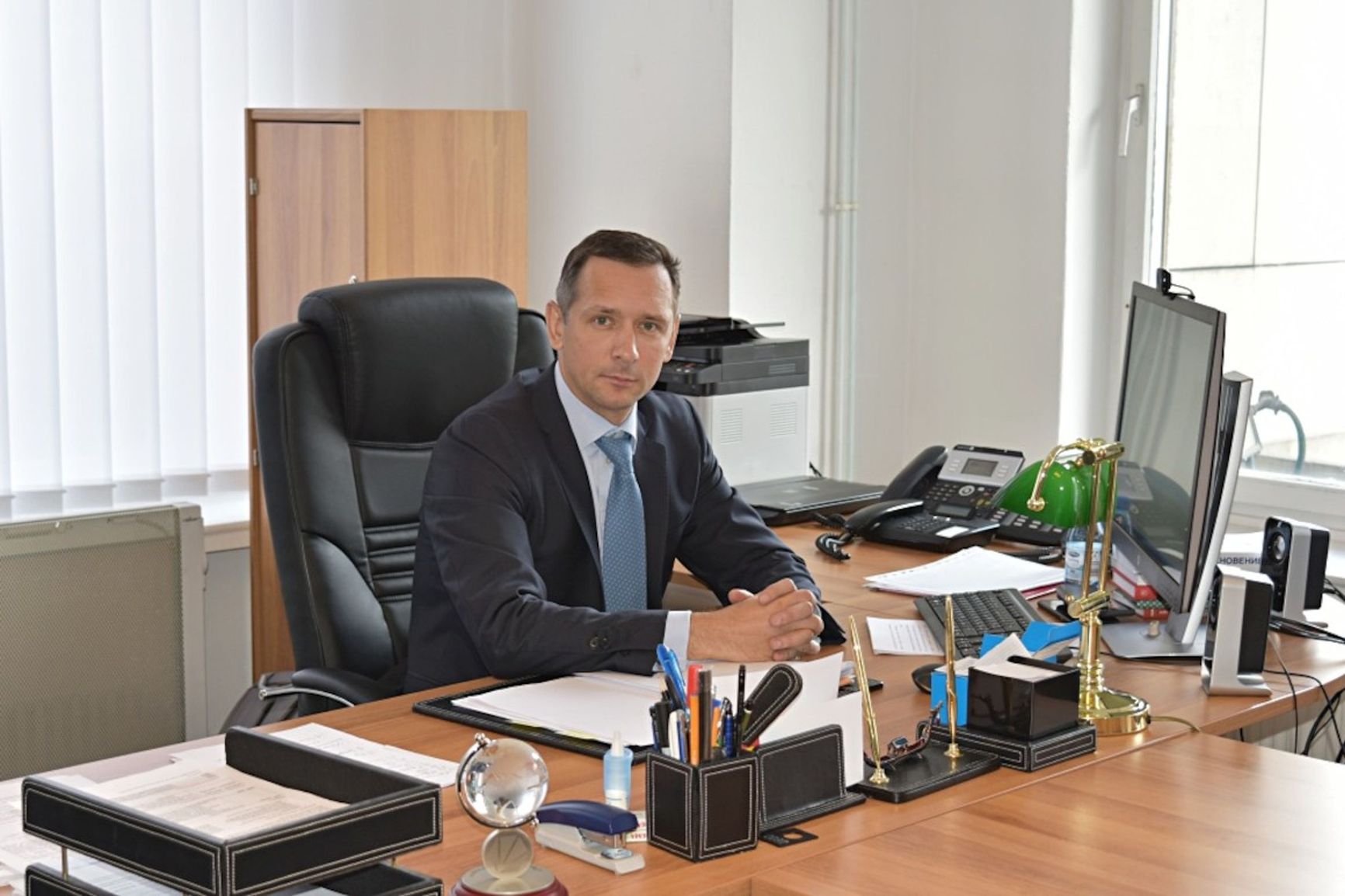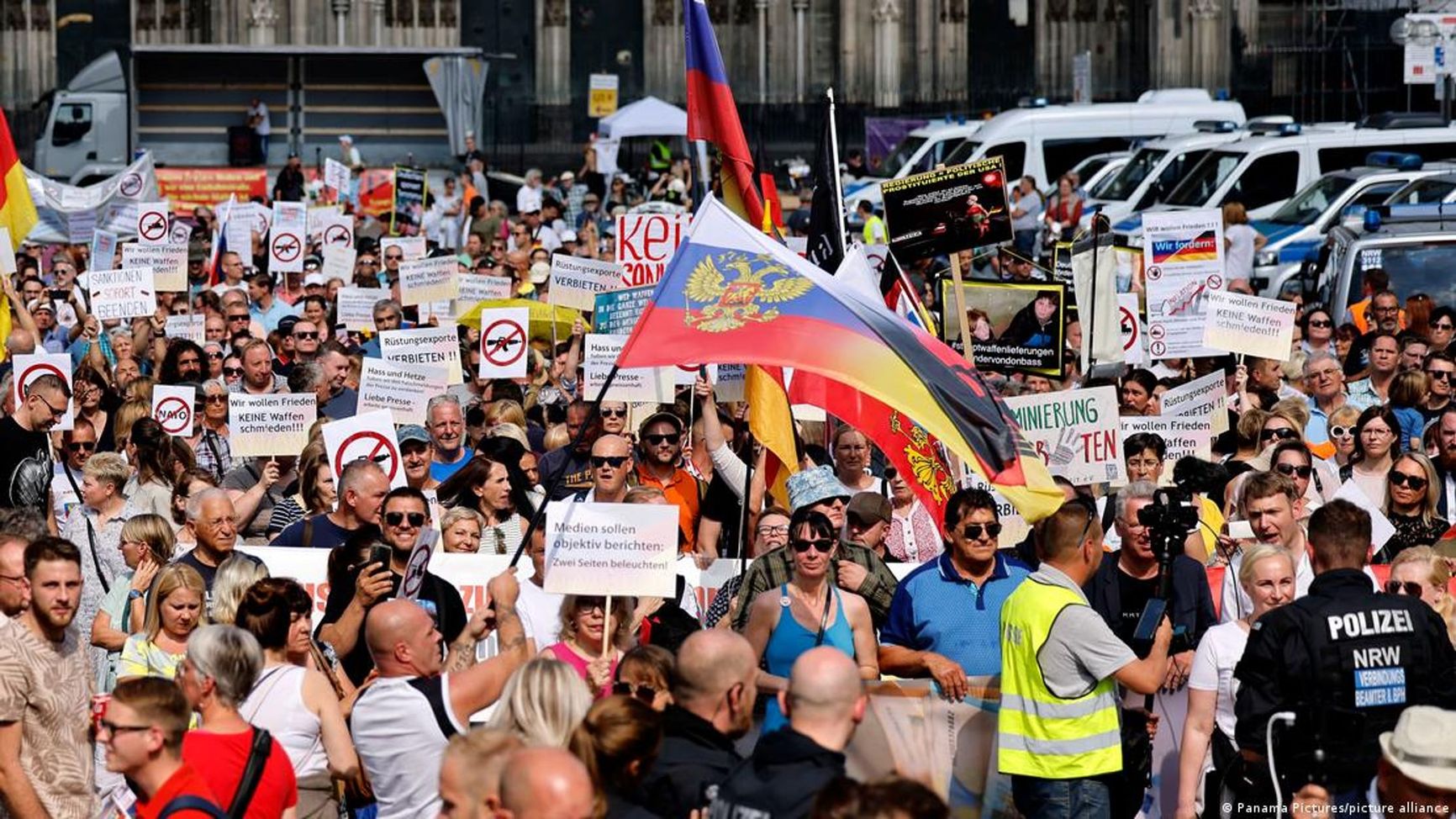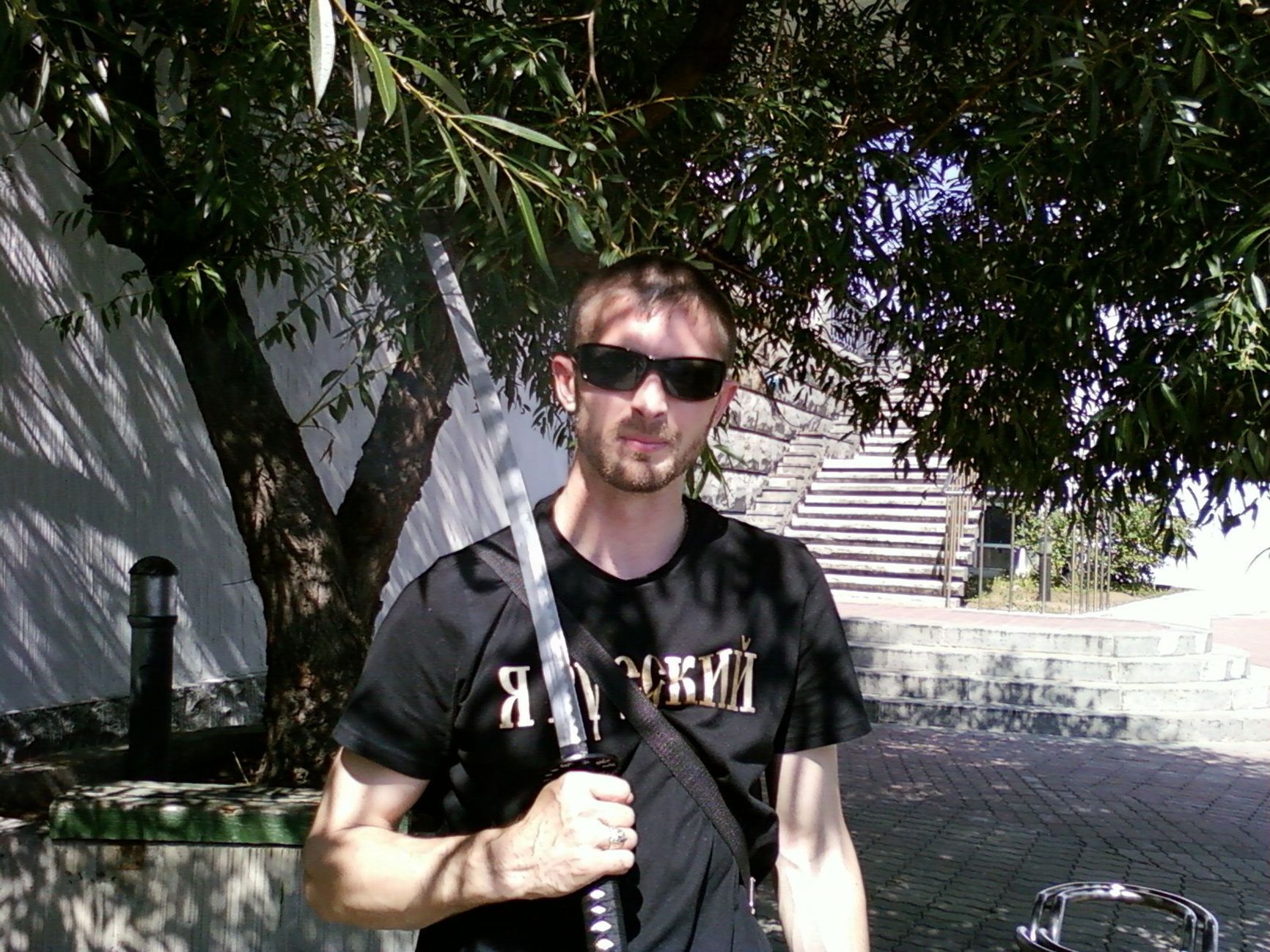

The Berlin Prosecutor's Office launched a probe into the Russian House of Science and Culture (RHSC), better known as the “Russian House,” for compliance with the Foreign Trade and Payments Act amid the sanctions regime. Earlier, the Accounting Chamber of the Russian Federation revealed numerous financial violations in the RHSC. Formally, this organization is intended to promote cultural interaction between countries, but de facto it has become one of the instruments of hybrid warfare, ideological propaganda and political interference in Germany's affairs. At the same time, members of the RHSC often act through criminals. For example, Russian House paid for the visit to Russia of a German citizen, Maxim Schlund, who last September was one of the organizers of a mass rally in Cologne in support of the Kremlin policy. As The Insider found out, the German Schlund turned out to be a previously convicted Russian, Rostislav Teslyuk.
A complaint against the Russian House was filed by Volker Beck, an MP of the Green Party. In his appeal to the prosecutor's office, he stated that “it is simply unacceptable that an organization in Germany is engaged in Kremlin propaganda, while people are dying every day in the war in Ukraine.”
The RHSC in Berlin is the largest arm of Rossotrudnichestvo (Russia's Federal Agency for the Commonwealth of Independent States Affairs, Compatriots Living Abroad, and International Humanitarian Cooperation) and costs Russian taxpayers about $10 million a year.
The encrypted notes from Moscow available to The Insider give recommendations to the Russian House on how to promote soft power in Germany:
“The RHSC should be a motivating framework for promoting a clear ideology as a system of guiding value principles that sets the RHSC apart from its competitors on the soft-power circuit. New ideas should form an ordered, rather than a chaotic collection. It is important to create a cohesive image, which will be perceived even on a subconscious level by the society of the host country. Here it's worth analyzing the best Soviet practices without directly copying them.”
Before the pandemic, the RHSC held 300-400 propaganda events each year in Germany, such as “Weekends at the Russian House”, “Preserving Historical and Cultural Heritage Abroad and Raising the Younger Generation”, “Role of Russian Saints in the Spiritual and Moral Education of Youth”, “Hello, Russia”, “Russian Seasons in Berlin”, “Sobibor”, etc.
This included paid Russian language lessons, quotas for young compatriots living in Germany to study at Russian universities and paid-for visits of youth delegations to Russia through the RHSC. After Russian troops attacked Ukraine, the RHSC switched to online Russian language courses and stopped holding events. Revenues plummeted, and there was no money to pay for German security and utilities. Alarming encrypted messages flew to Moscow, asking for money.

However, two months ago, the Russian House became active again, inviting citizens to watch Soviet films in its cinema theater. As an arm of Rossotrudnichestvo, which is on the EU sanctions list, the Russian House has no right to profit in Germany from selling tickets to its events or renting out premises under its purview.
In Berlin, the RHSC had been granted a perpetual use of a 0.68-hectare land plot and a building with a total area of 29,000 square meters housing 64 residential apartments and technical facilities. In addition, it has a two-story villa at 29 Zittauer Strasse in Dresden (a land plot of 0.12 hectares, a building with a total area of 303 square meters), formerly owned by the Western Group of Soviet troops in Germany. Most of the RHSC's living quarters are being leased to German firms. The list of tenants included the fashion store Escada, the company Crist, Kulturverein Tolstoi e.V., the travel agency Ada Reisen, the firms Thyssen-Krupp, GelikonsEuropa, Trofimov-Medien, and the German-Russian Cultural Institute, which occupied a villa in Dresden. And in some cases, the rent was unreasonably low.
The Insider has at its disposal the final reports of the Accounting Chamber (AC) of the Russian Federation on financial audits of Rossotrudnichestvo in Germany from 2015 to 2020. The audits revealed numerous financial violations at the Russian House and instances of careless preparation and storage of accounting documents.
For example, to replace worn-out parts of washbasins and toilets in the RHSC apartments, items were purchased at the price of 230 euros per unit. Although, as the AC inspectors found out, such sanitary wares cost no more than 50 euros apiece in local stores. In addition, the representative office did not keep internal financial control records, did not provide timely reports on the cost and performance of certain activities, grossly violated antimonopoly laws in arranging procurements, overstated the quotas for and understated the floor area of premises to be rented out: “The inspection discovered the absence of complete and accurate information in the central office of Rossotrudnichestvo about the federal properties made available for free use, which indicates a lack of proper control over the activities of the representative offices”, the Accounting Chamber reported (the full version of the AC report is available to The Insider).
Since 2017, the Russian House in Berlin has been headed by Pavel Izvolsky. He speaks extensively in the media and considers himself part of the cultural dialogue between Russia and Germany. In an interview with the Moskovskaya Nemetskaya Gazeta, Izvolsky said that he graduated from the history department of Nizhny Novgorod State University and the Diplomatic Academy of the Russian Foreign Ministry. After that, he worked at the All-Russian Exhibition Center and Rosatom, where he managed international projects and their staffing.

Pavel Izvolsky
However, there is no mention in Izvolsky's biography that at one time he was registered in the officers' dormitory at 190 Golovacheva Street, where cadets of the Moscow Higher Military Command School (MHMCS) live. Many MHMCS graduates serve in the GRU or spy for the SVR scientific and technical intelligence.
According to Reuters, the Russian House paid for a trip to Russia of Maxim Shlund and his common-law wife, Elena Kolbasnikova, who organized a pro-Kremlin rally in Cologne last September. The pro-Russian activists carried posters demanding the lifting of sanctions against Moscow and an embargo on German arms sales to Ukraine. The propaganda rally was widely covered on Russian federal TV channels, and although the number of participants did not exceed 1,000, the presenters called it a mass protest by the German people.

Rally in Cologne
In addition to Cologne, Schlund and Kolbasnikova held a so-called Music, Food and Sports Day in Düsseldorf. The banquet hall was decorated with flags depicting Ramzan Kadyrov, and a photo from the event was posted by Chechen Information Minister Akhmed Dudayev, who called Schlund and Kolbasnikova goodwill ambassadors. In addition, the couple often posed as ordinary Germans and appeared as commentators on the Rossiya-24 television channel and participated in a propaganda film financed by Tsargrad owner Konstantin Malofeyev, “Activists from Germany came to Donbass for truth,” according to the press release.
Kolbasnikova was reportedly born in Ukraine, and Schlund was known as Rostislav Teslyuk before moving from Russia to Germany. He graduated from the Aircraft Department of the Voronezh Air Force Academy and then served in the Air Force. On social networks, one can find a photo of Teslyuk wearing a military pilot's uniform, as well as a black “I am Russian” T-shirt, very popular with radical nationalists.

Meanwhile, as The Insider found out, Teslyuk-Shclund had been on special record with the police for causing bodily harm to a man in 2010, for which the court sentenced him to one year of probation.

Moscow Main Internal Affairs Directorate bulletins

Moscow Main Internal Affairs Directorate bulletins
In addition, according to the January 13, 2009 police report from the Moscow Main Directorate of Internal Affairs, Teslyuk stole RUB 1,600.53 ($23) worth of goods from the Seventh Continent store in Miklukho-Maklaya Street, but he was caught red-handed (criminal case #158532). Judging by the reports of the Accounting Chamber, the course of Teslyuk's activities has not changed much since then, although the scale has grown.